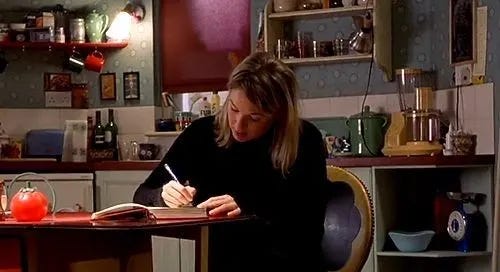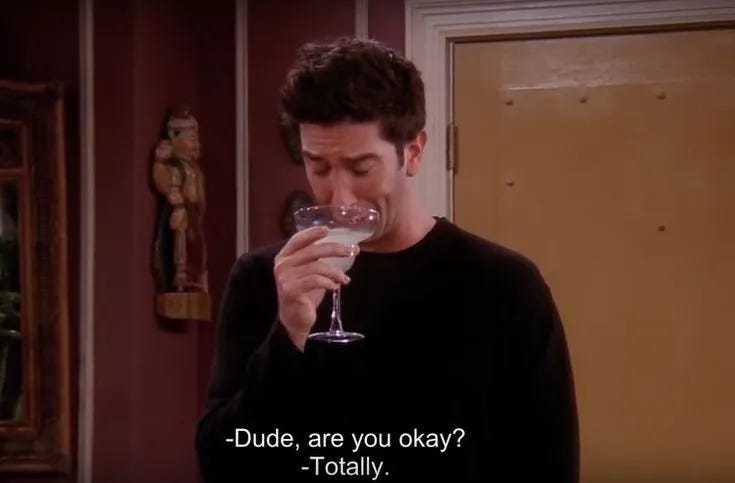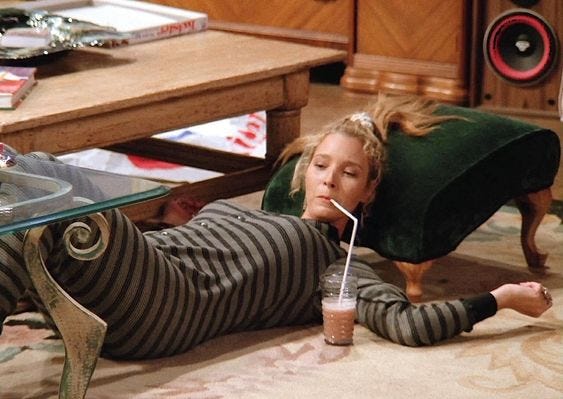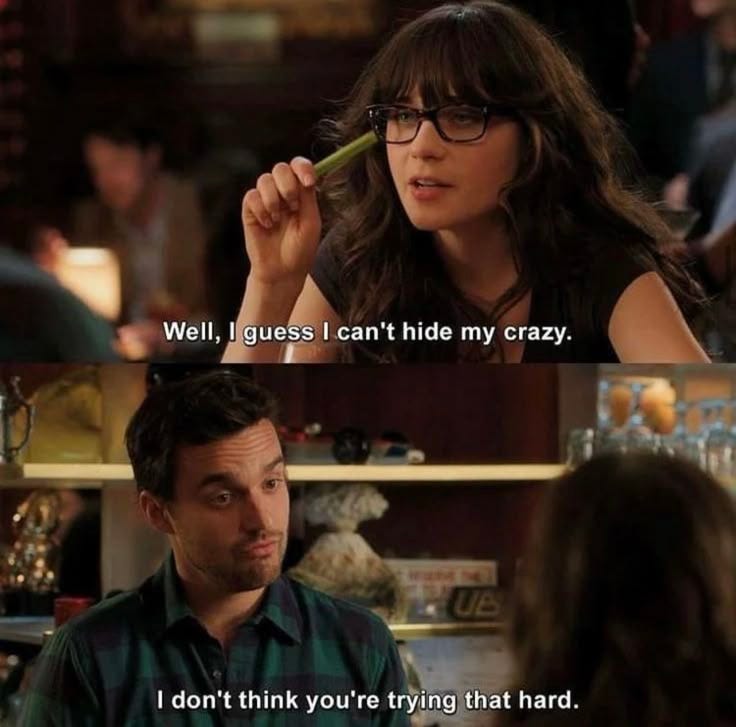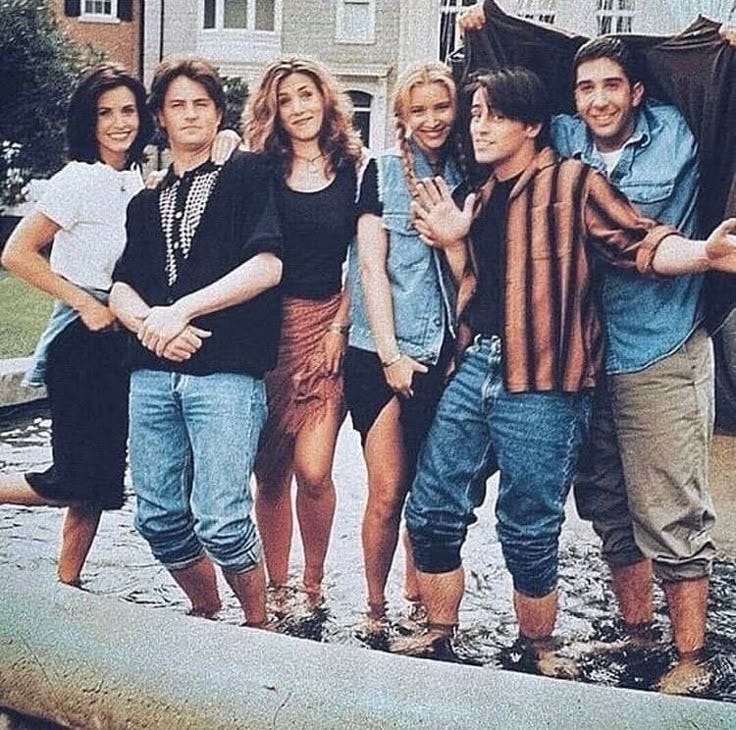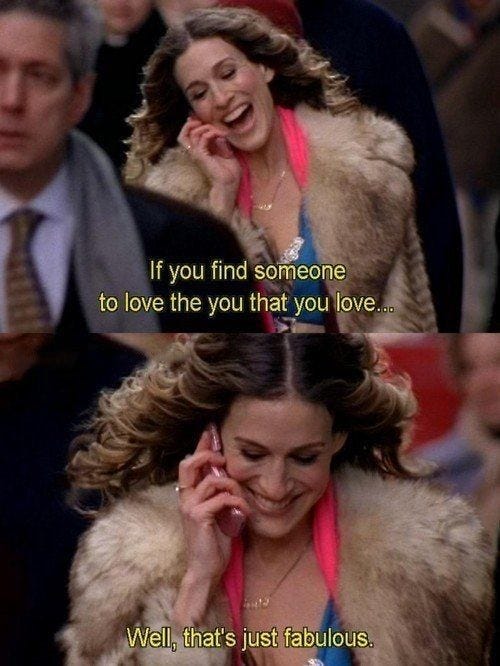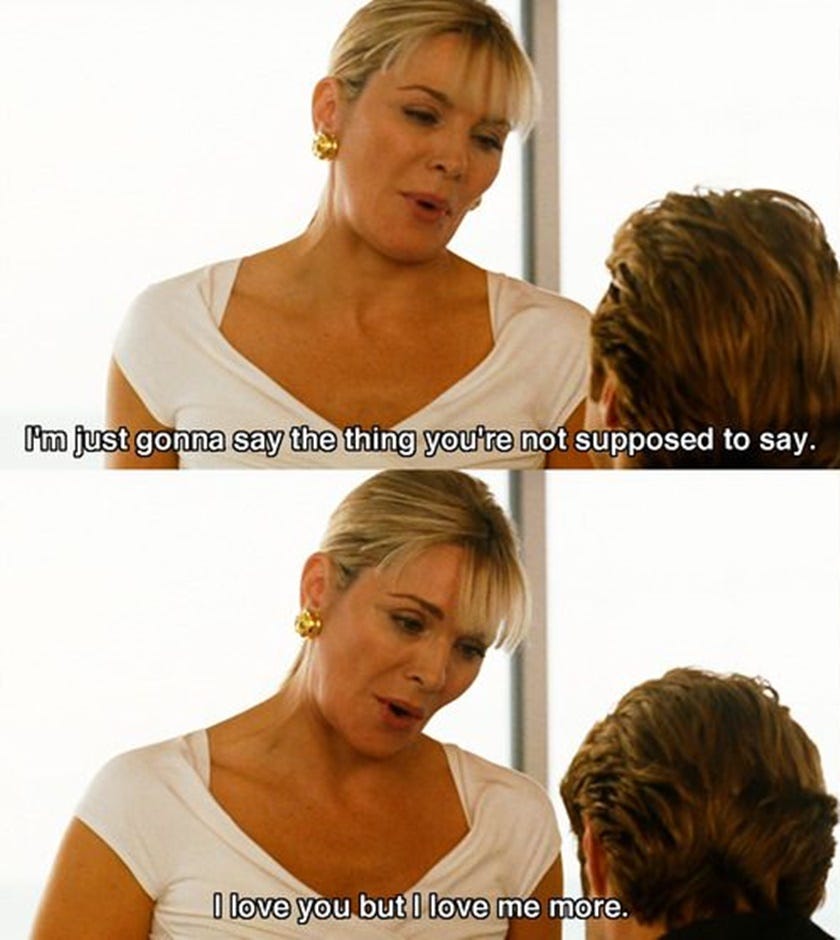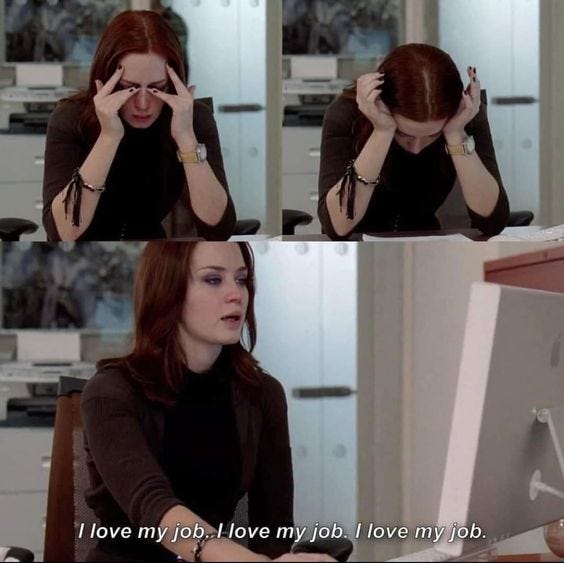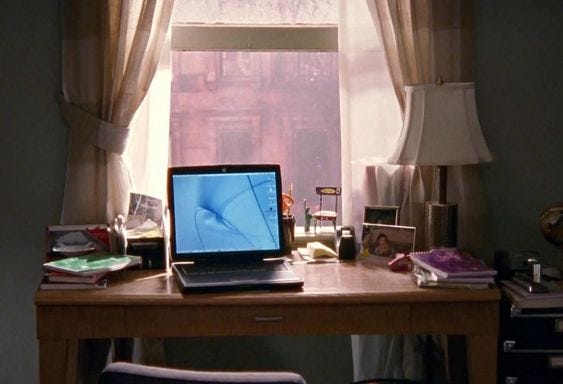In 2014, when I started my sabbatical year, I never imagined that solitude would become part of my lifestyle. I knew that some relationships would be cut off, but I never imagined that my contact with the outside world would be limited to a small group of three close friends. I also never imagined that being in my own company would become my favorite social activity – especially when one of my greatest pleasures was being surrounded by friends.
So, what was supposed to be a year of vacation for my mind, soul and heart, ended up becoming years of self-discovery. And what was supposed to be just a temporary social detox ended up becoming a necessary constant action. After ten years of living almost entirely in my own company, here are the 9 things I learned from solitude:
1 – People don't always accept your choices
I used to spend more time going to places than at home. I was always hanging around at friends' houses, going to parties, working… People, in general, are used to seeing other people in this rhythm of life focused on external experiences. And this is absolutely normal.
But one day, I closed myself off from the outside world – I went into the cave, the cocoon, the shell or any other place you go when you want to spend some time alone in the hope of coming out of there renewed.
I had never done this before in my life. It was the first time and, I confess, I was scared. I was terrified of being alone with myself. Would I like myself when no one was watching and all that was left were my own thoughts, desires and wishes? Would I be able to bear the burden of being myself without the external influence of society? Would I be able to live without anyone telling me how to live my life, without anyone to hold me up when my legs got tired from carrying the weight of my intense emotions?
What happened was that I ended up falling in love with myself. And that's when I discovered that my biggest fear was getting used to a solitary life and ending up becoming a kind of urban hermit, because deep down I knew that who I was when no one was looking was the person I wanted to spend the rest of my life with – and the consequence of this act would be a much quieter and somewhat solitary journey. A very different scenario from the one I was raised in. A very different scenario from the one most of us were raised in.
We grew up being molded into the idea that, for our survival, it is better to stay in groups, and the more people there are, the better. But this is a somewhat outdated concept, after all, no one lives in caves anymore where there is a risk of being attacked by a wild animal. In fact, nowadays, we run a much greater risk of being attacked in big cities by the same animal whose species we belong to. So, when someone who is supposed to live in a pack decides to move away and become a kind of lone wolf, the pack tends to reject that idea and think it's absurd. What happens is this: many people (many, really) will make comments like "You need to get out of the house more, talk to other people", "Wow, I don't understand how you can do nothing, not see other people", "You'll end up going crazy and lonely", and so on...
I used to not understand the Tibetan monks who chose to live a secluded life and spend their days meditating in caves. Today I respect them. I understand them to a certain extent. I don't intend to go live in the Himalayas or anything like that, and I also have no plans to close my eyes to the world around me. Being able to call a limited number of people friends and cutting ties with those who don't add anything to my life is not selfishness, it's self-preservation.
These days, the danger lies in the crowds. If you want to preserve a high degree of sanity, be content with being called a hermit, a hippie or a crazy cat lady. Not living in a group means being different in the eyes of society. And society tends to reject what is different because they do not understand it – and also because human beings fear what they do not know.
Yes, following a lifestyle outside of conventional standards scares many people. And when people feel afraid, one of two things happens: either they attack or they run in the opposite direction.
2 – Life takes on a different rhythm
Every day life is busy. It seems like there is never any time left. And when there is, we are too tired to enjoy it. But that doesn't happen when you have a more reclusive lifestyle.
Living surrounded by people demands a price: your time. And this can be a very high price to pay. Time is our most valuable asset in this life and we must use it wisely – preferably doing things that please us. Which doesn't always happen when we have too much work, too many friends, too many duties, too many social responsibilities.
When we choose a more reclusive life, we gain time.
We gain time because we no longer need to attend that event just to socialize. We gain time because we stop using it to please others instead of ourselves. We gain time because we stop worrying about people and situations that are not our responsibility. We gain time because the circle of important people who deserve our attention shrinks, our duties are reduced, our "I have to do" turns into "I want to do or I don't want to do". We gain more time to do what is truly important to us. And, as a consequence, we realize that time slows down and, sometimes, we even lose track of it. When for the rest of the world a month has passed (even those months of 528 days), for you it hasn't even been a full week yet.
Time is relative. It doesn't pass in the same way for everyone. It depends on the way you perceive life. And do you know what happens when your internal clock slows down? Exactly, you gain more time. And this even influences your cells, your aging process.
In the conventional model of life, we are governed by the external clock. And there is nothing wrong with that, after all, it is a wonderful system for keeping us oriented, in a way. But our body has an internal clock with its own rules and desires. Some people function better at night, others first thing in the morning. There are people who don't socialize before breakfast, others who wake up with enough energy to light up an entire city. Some people need eight or nine hours of sleep, and others who don't even need five.
The moment you distance yourself from the needs of society and your running clock – which tells you when to eat, what time to go to bed and wake up, which controls your day to day – you start to listen to your own body. And when you start to respect your biological clock, you realize that life has a natural rhythm. A steady rhythm, but patient and calm. Then you realize that you have stopped racing against time and, instead, have started moving at the same speed as it.
Does time fly? It depends on your point of view. If you live counting the hours, days, months, and years, then yes, time flies. But when you lose this notion of time imposed by the model of civilization in which we live... it's as if, suddenly, you have more time than you need to do everything you want.
3 – I learned to recognize my needs
When we spend more time in our own company than surrounded by other people, we develop the ability to listen to our thoughts and pay attention to them.
Living in society, it is easy to confuse our desires with the desires of others. We are beings made of energy. Our thoughts are energy. And we can be affected by other people's thoughts.
The best example I can give in relation to this is that feeling that we all have felt at least once in our lives that "the vibe of that person or that place was not good" or "I love going to that place because I feel good there" or "I love that person because I feel good around them". This is energy. This energy is present in everything, and our thoughts are responsible for this energy field that expands around us and around those around us.
There are people who are easily influenced by other people's energy, just as there are those who have the gift of influencing others effortlessly. There is also a group specialized in "sucking" other people's energy, but I will not go into that topic now.
The thing is, when we spend all our time surrounded by people, in one way or another, we end up being influenced by the energy present in the place and by those around us. We are, in essence, an ecosystem constantly exchanging information. And if we don't know ourselves very well, we run the risk of following our lives according to the will of others without ever realizing it, believing that our tastes and choices are our own will rather than the mere influence of the people we live with and the environment in which we are inserted.
After I began my sabbatical, I realized that I had completely lost my way. I was living according to external influences. And that was not the life I had dreamed of for myself before I was swallowed up by society and its extreme voracious needs. What I discovered was that, even though I wanted certain things, there were a significant number of other things that I only wanted because the people I associated with wanted them too. And the same happened with my thought patterns. When I stepped away from that crazy and intense social life, I discovered that many of the opinions I had as my own were, in fact, the opinions of others.
Being alone – and staying that way for a long period of time – taught me to recognize my own thoughts and desires. Now, when I am with friends, family or meet new people, even with some slip-ups, I can still identify when I am being influenced by their energy and, thus, resist the old habits of getting carried away by ideas and needs that are not mine.
I’m a work in progress. As I said, sometimes I slip into old habits. It is easier to be led by the crowd than to take control of one's own choices. But I believe I am much better at this today than I was yesterday.
4 – I learned to respect myself
Once we learn to recognize our needs, desires and dreams without external influence, we learn to respect these needs, desires and dreams. When your only concern is to stay happy (and keep your sanity), you understand that this can only be achieved when we respect ourselves. And when we start to respect ourselves, little by little, we learn to say "no" without fear of hurting someone because what matters most is not hurting ourselves. We learn to respect the choices and opinions of others without adhering to them for fear of being rejected.
I have my limits and some peculiar tastes, and I respect them with a certain devotion. After practically a whole life trying to fit my square screw into the round hole of society, rejecting my essence – and suffering for it –, I feel it is my duty to cultivate adoration for my weirdness (which, in truth, seems very natural and normal to me).
5 – I understood the meaning of "better alone than in bad company"
So... I've used this phrase a lot in my life, but I didn't understand it at all.
Better alone than in bad company doesn't just refer to romantic relationships. Far from it. This phrase should be the mantra of those who are in the process of transforming their lives, because there are plenty of people in this world who are ready to throw a bucket of cold water on your hot bath.
From the moment you kind of isolate yourself and mind your own business, you realize that certain "friendships" serve no purpose other than to stop you from living your life – whether it's making you sad, irritated, tired (physically and emotionally), apathetic, down, unmotivated (this one is really sad... people who demotivate us should be banned from our circle of friends, even those who are fun and nice, it's not worth it) and so on.
For our own good, we need to clean up our circle of friends.
And this task can be very, very, very difficult since, sometimes, these people are our parents, siblings, husband/wife, children... Cutting ties with that clueless friend is easy, what's complicated is realizing that the source of your lack of appetite for life is someone who shares the same house as you, someone with whom you are in contact 7 days a week, 12 months a year (and, in some cases, 24 hours a day).
Even so, it is very worthwhile to reevaluate our life situation from time to time and reflect on the type of relationship we want to maintain in our daily lives.
6 – I realized that most relationships are superficial
It can be frustrating to realize that the friendship you believed to be a connection from other lives was actually nothing more than a superficial connection. In other words, you were only friends because, until then, you shared the same interests.
I'm not saying that this is a bad thing. Not at all. This type of connection is the basis of our civilization. We are all vibrating at a certain frequency and, consequently, attracting people and situations into our reality all the time. So, when you change your thought pattern, your desires, your wishes, your lifestyle, those people you were used to relating to – and who remain in the same pattern – will move away from you. In fact, you will move away from them.
But don't worry, there are still people you will relate to who (even if they don't vibrate exactly at the same frequency as you) will remain in your life. It's a very small number of people, yes, but they are the only relationships that should be kept close.
7 – I discovered that it's really good to be myself and that I love my own company
This part, for that part of us that dreams of sharing a life with someone, can be dangerous. Because what usually happens in these cases of solitude by free will is that... well, you kind of get used to being the master of your own time, not giving explanations, not worrying about taking risks because no one depends on you and other things that only someone who lives for themselves is able to report.
Does it seem a little selfish? Maybe. But like everything in life, it depends on the point of view. Maybe this is exactly what the world needs right now... people taking care of their own gardens with love and care.
Plus, there's the bonus of being able to do things you wouldn't normally do in front of anyone else simply because there's no one there to be bothered by your annoying habit (everyone has an annoying habit and people aren't obliged to live with other people's annoying habits, so in the interest of good neighborliness, we end up saving our annoying habits for moments of solitude). The problem with annoying habits is that they're wonderful for us, and once we get used to them being part of our daily lives, it's hard to give them up.
Added to this is the fact that it's fun to like the same things you like, to laugh at the same jokes you laugh at, to not disturb yourself when all you want is peace and quiet, to have the same opinions... it's like you discover that you are your own soulmate. Or something like that.
Generally speaking, after you spend a lot of time alone, you get lazy about having to adjust your routine to someone else's routine.
Right now, my freedom is taking its toll, and I'm willing to pay for it. Because, man, I love my freedom. I love not depending on others to do what I want when I want. I love knowing that I can decide to do whatever I want, right now, without having to make plans with someone, without having to set dates and count time on the clock. I love the fact that, if I want, I can simply do nothing on a Monday, or Tuesday, or Wednesday, or Thursday, or Friday, and that I don't have to wait for the weekend or holidays to travel, relax, vegetate watching Netflix...
I love the freedom I've gained – and I'm only willing to make a concession if I find someone heading in the same direction as me. After all, as I said above: better alone than in bad company.
8 – I learned to love myself
There are some people out there who like to mention a famous quote from Jesus in which he tells us to love our neighbors as we love ourselves.
With all due respect to this ancient master, I think he underestimated the human capacity to love ourselves in an unhealthy way. If I had been Jesus, I would have said "Love yourself the way you would like to be loved by others". It seems selfish, but I have a plausible explanation, I swear.
Hear me out… people don't know how to love themselves. They have learned over the centuries to serve others. And they do this expecting something in return: money, attention, love... People tend to confuse kindness with business. This is because, again, they don't know how to love themselves. Before loving others, we need to develop love for ourselves.
How many people do you know who don't take care of themselves with love and affection? How many people do you know who don't value themselves and belittle themselves daily? How many people do you know who don't take care of their physical, mental and emotional integrity?
We all have our needs to some extent. Our job is to learn to take care of ourselves without expecting anything in return. Loving ourselves is the greatest act of charity we can do for the world, because when we love ourselves, we value life and everything around us. Consequently, by loving ourselves, we are loving others.
When someone learns to love themself in a genuine and healthy way, they stop looking for love in others. And when we stop looking for love in others because we are overflowing with love from ourselves, we understand what it means to love others without demanding anything in return.
You cannot give what you do not have. If you do not feel love for yourself, I guarantee you will not feel love for anyone else. You may feel something similar, something more mundane and superficial. But love, free from ties and duties, you only feel after you learn to love the person you are – with all your defects and qualities, in health or in sickness, in wealth or in poverty, in the darkest night of the soul or in the brightest days... until the end of your life.
Your relationship with yourself is the most important thing. Everything else is a consequence.
9 – I discovered that my time is worth more than gold
Time is all we have that has no monetary value (although society insists on paying us for it and, in exchange, we dedicate our best years to the operation of a machine that, in the vast majority of cases, does not favor us much).
I have nothing against money – or gold –, I think it is an incredible form of exchange that makes life easier. Imagine if everything were barter... it would be harder to get certain things. For me, money is like the “right to choose” – it gives me the right to choose what I want to do. Simple as that. Wonderful as it is.
That's why I understand the power it exerts in our lives. Money is synonymous with freedom (at least in our current social system). But I also know the danger it represents to this same freedom. Because there is no point in spending your whole life working like a workhorse (poor animal) to save enough to enjoy retirement and when retirement comes, you discover that you are too old and tired to do anything with that money.
What was the point of all that time working for the money?
For as long as I can remember, I have always had an aversion to "forced labor." And since I was raised by a woman who only feels useful when she is working, in a family that also follows the same standards of financial stability and surrounded by people with the same mentality, it took me more than thirty years to discover that I can have money and be the master of my time without killing myself working.
Discovering that I can have money without having to work my ass of was the revelation of the financial revelations for me. And realizing that I didn't need to be born with a silver spoon in my mouth or win the lottery to achieve this was like taking the weight of survival off my shoulders.
Since then, I have dedicated myself to studying the ways to generate passive income that I liked the most, and I began to value my time not for the money it generates, but for the experiences it provides me.
Today, I live for this: to have experiences. To learn new things, to visit new places, to do things that I couldn't do before because I was too busy doing what my boss told me in exchange for a few bucks at the end of the day.
If I'm going to put a price on my time, then let it be doing things that I enjoy. Otherwise, I'm closed for business.
How you can help me keep my job as a Substack writer:
Subscribing to my newsletter
Sharing, commenting, and liking my texts
Buying through my affiliate links (when available)
Bohemian Heart is a reader-supported publication. To receive new posts and support my work, consider becoming a free or paid subscriber.


